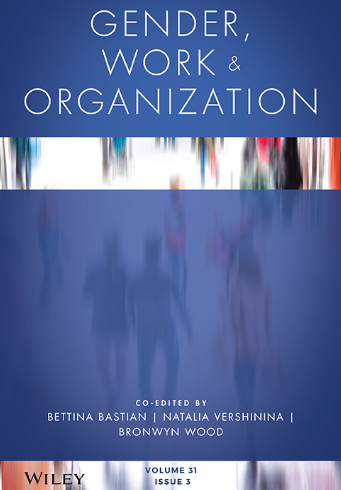Stained glass ceilings: Gender and race in accounting academia in Brazil
Abstract
Brazil is divided into five large regions marked by profound economic and social inequalities. Such vast differences can make people feel like “foreigners”, even though they live in the same country. Here, meritocracy is seen as the criterion for assessing and promoting people, which is conflicting given the absurdly unequal contexts in the country. This choice widens inequalities of gender, race and, above all, social class. Between 2000 and 2018, Brazil experienced profound social transformations. Female participation in the labor market grew, although there were still barriers to access and professional advancement for women, which were exacerbated in the case of black women. When it came to leadership positions, they were almost always blocked by processes which depended on subjective decisions from evaluators. These circumstances occur through daily confrontations with processes of sexualisation and racialisation. These transformations were followed in the most recent period by clear setbacks, deepened by the COVID-19 pandemic and intense political polarization. A milestone in terms of Esperançar, a verb proposed by Paulo Freire (1992), were the 2022 presidential elections, understood as a process of re-democratisation. The social achievements that have been maintained, however, are ‘advances’ that work differently when the diversity of the population and regional differences are taken into account. With this particular context in mind, the aim of this study is to investigate how the “glass ceiling” phenomenon has been present in the daily interactions and academic trajectory of black women in the accounting field. The question that underpinned this study was: how can the academic accounting environment, considering practice and discourse, boost or hinder the “glass ceiling” phenomenon in the professional career of black female academics? This is a qualitative study with a post-structuralist approach, based on the adoption of auto-ethnographic and oral history techniques. The evidence was built up through semi-structured, in-depth interviews with female academics who had graduated from postgraduate programmes. This corpus was analyzed from an interpretivist perspective and the findings reveal that the “glass ceiling” phenomenon is present in accounting academia in Brazil and is expressed in barriers specific to the field. Barriers are erected in processes of closure, blocking the path of black women who aim to succeed in prestigious academic spaces, regardless of their level of qualification. In this way, they are conceptualized as “stained glass ceilings”, because the barriers become visible and concrete in a country where racism is a structuring element of social relations.

 求助内容:
求助内容: 应助结果提醒方式:
应助结果提醒方式:


